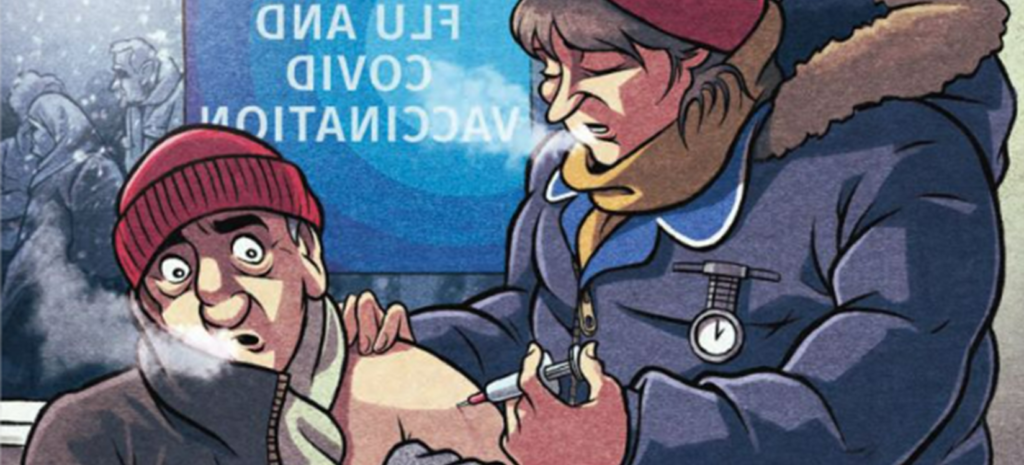Nursing in Practice: Nurses prepare for a tough winter ahead
Winter pressures began early, with nurses in primary care facing a host of challenges, including rising workload and unknowns around the severity of flu and Covid-19.

The autumn print edition of Nursing in Practice focuses on the enormous task that nurses in general practice have done in preparing for this winter: to deliver winter vaccinations, manage increased demand and the care backlog following Covid, and to support stressed patients and families who are worrying about their economic situations.
With a ‘depleted and exhausted’ workforce still tackling the impact of the past two years, busy nurses are confident in delivering the flu and Covid vaccination campaigns at pace, but concerns remain about workload and that vaccine fatigue may affect uptake.
Adele Parsons has worked in general practice for more than 16 years is a senior lecturer at the University of Lincoln. She points out that the success of a flu campaign often depends on the goodwill of practice nurses who, she says, ‘do what they need to do to make it work with what they’ve got’. However, she warns this goodwill is ‘starting to ebb a little bit’.
‘The PCNs have been fantastic because they’ve been able to pool resources, and in some areas, they are really well integrated,’ she adds. ‘I have no doubt that the goodwill again will be a major factor. The only problem might be the vaccine hesitancy for patients.’
In our ‘Ten Top Tips’ clinical series, GP partner and PCN clinical director Dr David Coleman offers clear advice to nursing teams for this autumn on protecting vulnerable patients this winter, including: active screening for mental health problems, promoting Covid and flu services, prioritising patients with poorly controlled asthma, and increased awareness of those who are particularly at-risk for other reasons. He says: ‘It goes without saying that patients who are elderly, frail or have a chronic illness will be particularly vulnerable. We must also be mindful of the pressure on carers and the challenges facing young families.’
At the same time, Marilyn Eveleigh, nurse adviser and Nursing in Practice advisory board member, asks ‘Why on earth does the NHS let experienced nurses walk away?’. She tells the story of nursing colleague ‘Natalie’ who, at retirement age, would have been willing to stay within the NHS, but found opportunities lacking. Despite a serious nursing shortage, and the UK reaching out to other countries for recruits, the NHS is an inflexible and unimaginative employer, says Ms Eveleigh, who adds: ‘Sadly, the NHS has allowed another experienced nurse to leave, taking much-needed skills with her. What a scandalous waste.’